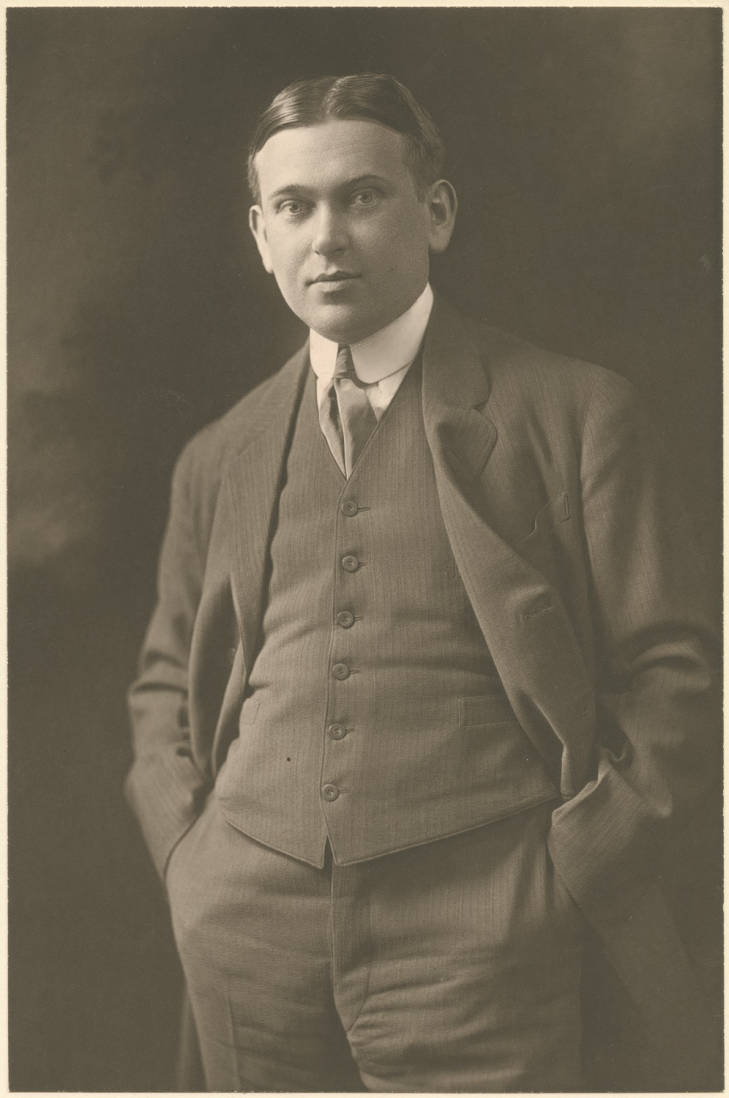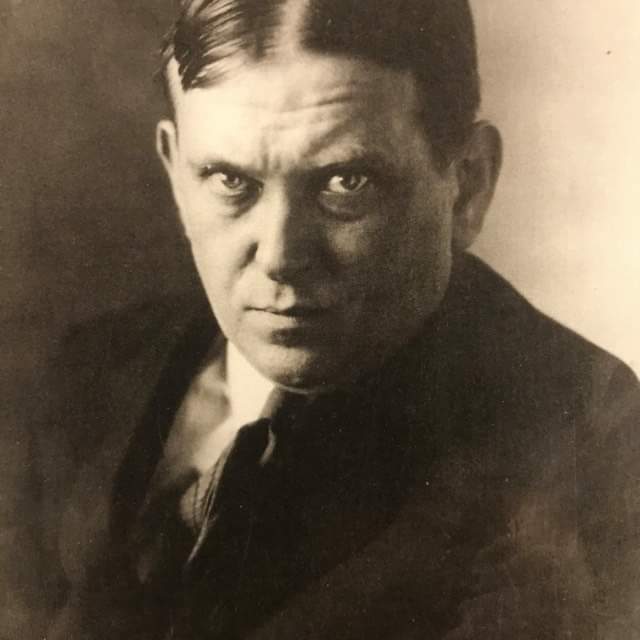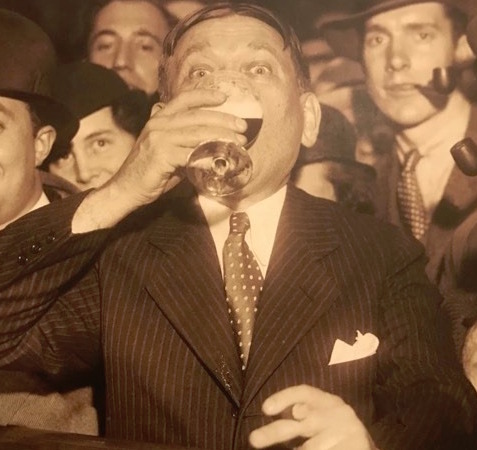H.L. Mencken

Mencken, 33 years old
The Man
Mencken produced an astonishing amount of work in his lifetime. He became City Editor of the Baltimore Morning Herald in 1903, when he was 23. In 1905 he published his first major book, George Bernard Shaw: His Plays, a study of the iconoclastic British playwright. A steady stream of newspaper articles, book reviews, and books of literary and social criticism followed. His columns “The Free Lance” for the newly created Evening Sun, begun in 1911. He co-edited The Smart Set with George Jean Nathan from 1914 to 1923. The two writers founded The American Mercury in 1924. Mencken’s most enduring work, The American Language, was first published in 1919, followed by several supplements.
Mencken’s wide ranging activity as a writer included his work as a literary critic. He championed the cause of American naturalists like Theodore Dreiser and Sherwood Anderson, writers whose work dealt directly and realistically with twentieth century America. Mencken was also a social critic. He objected to what he defined as the Puritan tradition, which dominated the American temperament and the American artistic world. He found the hard-hitting language of the streets a better source of material for his writing.
He delighted in the satirical, the dramatic, and the iconoclastic.

Mencken, 45 years old
Newspaper Days
Mencken’s career flourished throughout the first year of his marriage to Sara Powell Haardt (1898-1935). Treatise On the Gods was both a critical and financial success. The Great Depression carried with it, however, declining subscription for all manner of literary enterprise, and Mencken’s American Mercury was no exception. Mencken was losing his one secure national forum for his views, and all attempts to save the magazine were largely ineffective. At the end of 1933 he resigned his editorship of the American Mercury and began concentrating on a series of philological studies which would culminate in the publication of The American Language.
Throughout the 1930’s Mencken continued to write for the Baltimore Evening Sun, and his notoriety there never waned. In 1931 he published an article entitled “The Eastern Shore Kultur” in response to the lynching of a black man in Salisbury, Maryland. Mencken wrote that the eastern shore was the “Alsatia of morons,” and “that such a lynching was a public obscenity worthy of cannibals.” The response from the shore was swift and heated. The Marylander and Herald accused Mencken of being alternatively anarchist and communist. In response Mencken wrote “Sound and Fury,” which scorned the “low-down politicians, prehensile town boomers, ignorant hedge preachers, and other such vermin” responsible for the lynching.
Concerned citizens from the shore sent telegrams to the Sun offices threatening to lynch any Sun employee who set foot on the shore. The Sun delivery trucks en route to Salisbury were attacked and its drivers beaten. There were debates as to whether or not the eastern shore should secede from Maryland. For several weeks the antagonism continued. Mencken had not lost his touch. Indeed, he could still “stir up the animals”. Yet Mencken was slowly moving away from center stage. He was spending far more time in Baltimore than he had for many years. During his last years as the editor of The American Mercury he went to New York less and less, until finally there was no reason to go at all. Mencken spent a great deal of time with Sara during their five year marriage, vacationing frequently in places like Havana and Cairo. Each trip brought with it the hope that Sara might recover some of the strength that she was constantly loosing. Sara’s death in 1935 brought their “beautiful adventure” to an end.

Celebrating the end of prohibition, March 1933
The Social Critic
Mencken’s “The Free Lance” began on May 8, 1911 in the Evening Sun. His columns generated such controversy that letters of protest poured into the Sun’s office. Mencken saw to it that the most vigorous attacks against him were printed in the column next to his own: “This was partly mere bombast and braggadocia,” he later recalled, “but also partly genuine belief in free speech.” Mencken referred to “The Free Lance” as a “private editorial column devoted wholly to my personal opinions and prejudices.” The title, in fact, denotes a knight who will do battle for a whole variety of causes. Mencken launched his career as a social critic with the founding of The American Mercury. He wanted a magazine free from literary criticism so that he could deal with the wider issues of society and politics. By the time The American Mercury was established in 1924, Mencken was already a nationally known figure.
The 1920’s marked the high point of his popularity. His work on the Sun and his series of weekly syndicated articles for the Chicago Sunday Tribute had extended his reputation greatly.
Mencken was especially sensitive to the threats against civil liberties. His political commentaries often focused on the breakdown of personal freedom. Prohibition represented one threat. In Prejudices: Fourth Series, he comments: “What lies under it (Prohibition), and under all the other crazy enactments of its category is no more and no less than the yokel’s congenital and incurable hatred of the city man.” His crusade against the Fundamentalist movement, culminated in the famous “Monkey Trial,” in Dayton, Tennessee, in 1925. Mencken covered the trial of John T. Scopes, a high school teacher who had presented the theory of evolution in his class. He saw the case as part of the struggle of civilization and science against bigotry and superstition.


